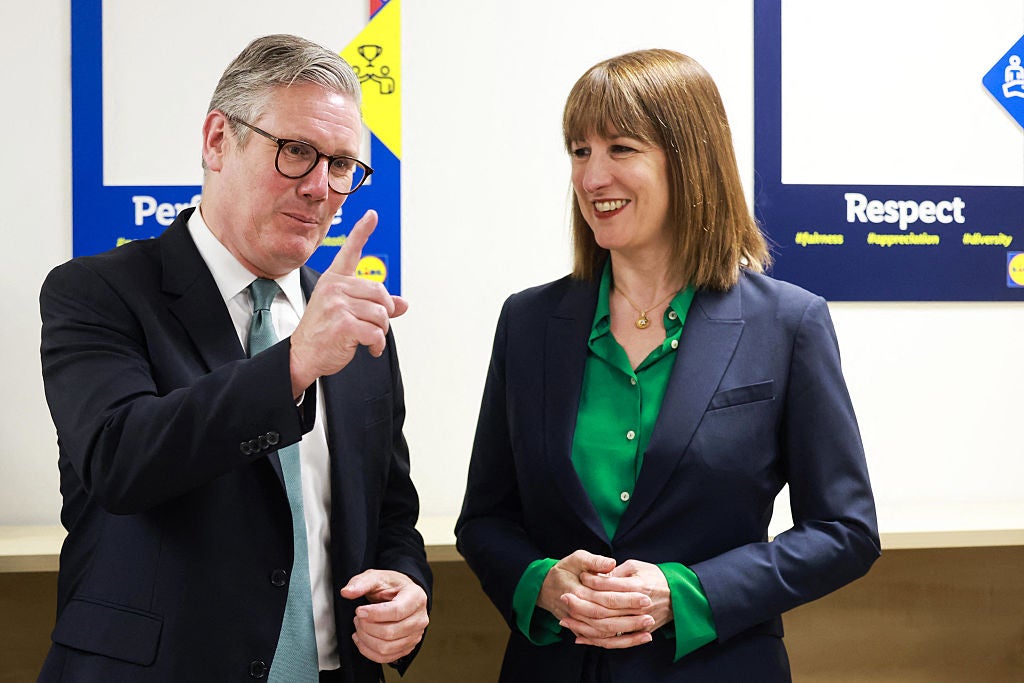Data from the Office for National Statistics (ONS) showed that inflation rose to 3.5 per cent in April, up from 2.6 per cent in March – the largest month-on-month rise in two and a half years.
While UK inflation had been gradually coming down this year, from 3.0 per cent in January, the rise for April’s data was not unexpected as it accounts for bill hikes, energy costs increasing and changes to social housing costs.
April also saw a later than usual Easter weekend, as well as businesses dealing with changes to labour costs – plus the uncertainty created by the beginning of Donald Trump’s tariffs.
January 2024 was the last time the consumer price index (CPI) rate of inflation was running above 3.5 per cent (at the time 4.0 per cent).
Data for CPIH, which includes housing costs, was running at 3.4 per cent in March and came in at 4.1 per cent for April.
Core inflation (CPI excluding energy, food, alcohol and tobacco) rose by 3.8 per cent in the 12 months to April 2025, up from 3.4 per cent in March.
ONS Acting Director General Grant Fitzner said: “Significant increases in household bills caused inflation to climb steeply. Gas and electricity bills rose this month compared with sharp falls at the same time last year due to changes to the Ofgem energy price cap.

“Water and sewerage bills also rose strongly this year as did vehicle excise duty, which all pushed the headline rate up to its highest level since the beginning of last year.
“This was partially offset by falling prices for motor fuels and clothing, driven by heavy discounting for children’s garments and women’s footwear.”
April’s data is likely to be a major factor for the Bank of England when it comes to deciding whether to make successive cuts to the interest rate next month.
Martin Sartorius, Principal Economist, CBI, said: “April’s rise in inflation was widely expected, driven by a perfect storm of price pressures such as higher employer National Insurance contributions, the National Living Wage increase, and a hike in the Ofgem price cap.
“Looking ahead, the Bank of England expects that inflation will stay above 3 per cent this year, as these pressures continue to impact households’ cost of living. This suggests that the Monetary Policy Committee (MPC) is likely to hold rates in its next meeting, especially after May’s finely balanced decision to cut. Beyond then, the MPC will reduce borrowing costs at a gradual pace, as it assesses how price pressures are developing in the economy.”
The MPC cut the Bank Rate to 4.25 per cent in early May, with the next session coming on 19 June. Many economists earlier predicted an immediate second cut, but with inflation always expected to head back up for April’s data – away from the government-set target of 2.0 per cent – the MPC will be paying attention to exactly where the inflationary pressures stem from before deciding on a third rate cut of the year.
Reacting to the rise in inflation, Rachel Reeves noted she is disappointed by the increase but said the government will go “further and faster” in a bid to cut bills.

The chancellor said the UK is still “a long way” from double digit inflation seen under the Conservatives, when CPI hit 11.1 per cent in late 2022.
“I’m determined that we go further and faster to put more money in people’s pockets,” she said, adding: “That’s why we have increased the minimum wage for millions of working people, frozen fuel duty to protect commuters and struck three trade deals in the past two weeks that will go towards cutting bills.”
Liberal Democrat deputy leader and treasury spokesperson Daisy Cooper MP nonetheless said Labour were at risk of repeating the worst period under the Conservatives.
“Today’s grim figures reveal a triple whammy on Britain’s households – resulting from the Government’s disastrous jobs tax, Donald Trump’s devastating tariffs and April’s damaging business rates bill rises.
“Ministers cannot allow inflation to spiral as it did under the Conservatives, but they risk repeating their record for as long as the employer’s National Insurance hike remains in place.
“It’s high time the Government saw sense and put in place a proper plan to boost our economy: scrapping the jobs tax, standing with our allies to end Trump’s trade war, and urgently negotiating a new customs union with the EU.”
Inflation is widely expected to fall lower again in the coming months, with an anticipated lowering of Ofgem’s price cap contributing in part to that, though it may be a slow fall to get back under three per cent again.
The Food and Drink Federation (FDF) forecast that food inflation will reach around 4.3 per cent this year, a lower estimate now than was predicted earlier in 2025.
However, the FDF point out the industry is still facing cost pressures from higher energy bills, rising commodity prices and more costs from regulatory changes. Rises to employer contributions to National Insurance are estimated to cost the sector more than £400m annually.




